Saudi Arabia’s September 11 Connection and the Contradictions of American Foreign Policy
How the state that aided terrorism on US soil has become an indispensable ally that the Biden administration is determined to placate at all costs.

On May 20, The Atlantic, an eminently mainstream publication that normally traffics in soothing establishment banalities, published a rare blockbuster: a detailed report based on newly filed court documents that make a compelling case that the government of Saudi Arabia was much more involved than previously known in providing “crucial assistance” to the terrorist attack of September 11, 2001.
According to Atlantic writers Daniel Benjamin and Steven Simon, court filings suggest that Saudi officials introduced two 9/11 hijackers
to local sympathizers in Los Angeles and San Diego who catered to their day-to-day needs, including help with immigration matters, digital and phone communications, and receiving funds from al-Qaeda by wire transfer. Saudi officials also helped the two al-Qaeda operatives—both Saudi nationals with little education or command of English, whose experience abroad consisted mostly of training and fighting for jihadist causes—to procure a car as well as driver’s licenses. This support network was crucial.
In years past, an article like this would have caused an uproar. Yet in 2024, perhaps because it was overshadowed by the current Israeli onslaught in Gaza, this article was noticed mainly by foreign policy experts. With the larger public, this was a classic case of what Sherlock Holmes called “the curious incident” of the dog that didn’t bark: The surprise was what failed to happen.
The general indifference to the article is all the more regrettable because it casts a crucial light on the unfolding disaster of Joe Biden’s Middle Eastern policy, with its perversely unyielding focus on tightening the alliance between the United States, Saudi Arabia, and Israel. This strange goal seems all the more absurd given the way Israel’s actions, notably the horrifying assault on Rafah, are turning the Jewish state into a global pariah. But Biden’s actions are more understandable, if still worth condemning, when seen as a byproduct of the September 11, 2001, attack.
We still live, without realizing it, under the long shadow of 9/11. In response to the hijacking of four planes which led to the death of 2996 people, the administration of George W. Bush opportunistically tried to reassert American hegemony in the Middle East with the badly conceived and dishonestly defended invasions of Afghanistan and Iraq. The latter invasion was justified not just by spurious claims of weapons of mass destruction but also by suggestions—advanced by allies of the White House—that there was a hidden connection between Iraqi dictator Saddam Hussein and the Al Qaeda terrorist network that executed the attack. The United States, thwarted by guerrilla resistance movements in both Iraq and Afghanistan, eventually withdrew from both countries. This withdrawal, along with the toppling of Hussein’s regime, has enormously strengthened America’s longtime regional foe, Iran.
In response to Iran’s new strength and also the Arab Spring that flared in 2011 and threatened to topple many long-standing American allies, the United States formed what Jamie Allinson, a lecturer on International Relations at the University of Edinburgh, calls the “axis of reaction.” This is a “counterrevolutionary” bloc that brought “Saudi Arabia, the UAE, the Egyptian military regime, and Israel, in alliance with US imperialism” and “hardened in the decade since the uprisings of 2011.”
In the ultimate irony, Saudi Arabia—the one state that actually was deeply implicated in the 9/11 attack—went not just unpunished but has been rewarded by the superpower it helped terrorize. This inversion of elementary moral logic was made possible by the topsy-turvy reasoning of crackpot realism: Saudi Arabia is too important an ally (and, it should go without saying, too important a source of free-flowing oil) to ever be subject to justice. Instead, scapegoats were found in the form of Iraq and Afghanistan (where the Taliban did host Al Qaeda—but which never had the intelligence capability inside the United States that Saudi Arabia possessed.)
First coalescing under Barack Obama, who both encouraged the “axis of reaction” even as he also pursued diplomatic solutions with Iran, this counterrevolutionary bloc was immensely strengthened by the innovative foreign policy of Donald Trump. Almost certainly motivated by a desire for lucrative business deals with oil-rich Arab monarchies, Trump pushed the formula of the Abraham Accords, which would see Saudi Arabia getting ramped-up military assistance from the US in exchange for normalizing relations with Israel. Implicit in the Abraham Accords formula (although rarely spelled out) was the assumption that Palestinian aspirations would have to be sidelined. At best, Palestinians in the West Bank and Gaza could hope for some financial assistance, under the theory that marginal economic improvement would be an adequate compensation for indefinitely deferred self-determination.
The Palestinian issue was always the weakest link of the Abraham Accords. Even before the Hamas attack of October 7, 2023, there was little reason to think the Palestinians would, in exchange for some Saudi walking-around cash, go gently into the good night of permanent colonial subjection.
Joe Biden inherited the Abraham Accords and has remained bizarrely loyal to it, both before and after October 7. In an exceptionally cogent assessment of Biden’s foreign policy in New Left Review, journalist Richard Beck argues that the pigheaded commitment to the Abraham Accords is best understood as a byproduct of great- power geopolitics. Like the Trump administration, the Biden White House believes that the world has entered an era of renewed great-power competition, with the United States having to fend off both a truculent Russia and a fast-rising China. Gearing up to combat these two foes—and in keeping with long-standing military doctrine that the United States should always be able to fight a two-front war—the Biden White House wants to be able to outsource its Middle East policy to regional proxies.
Hence the desire to build up both Israel and Saudi Arabia no matter their wrongdoings. In the case of Israel, this means turning a blind eye to the slaughter of Palestinian civilians. In the case of Saudi Arabia, it means a similarly blasé attitude towards human rights both inside the oil-rich monarchy and also in its often murderous foreign policy (as in its war in Yemen or the 2018 assassination of journalist Jamal Khashoggi, an American permanent resident).
The Biden White House hoped that outsourcing the Middle East to its admittedly unsavory regional allies would give the US military a free hand with the rest of the world. But the Middle East is a quagmire not easily escaped—especially since repeated American interventions against democracy have caused turmoil for decades.
Popular
“swipe left below to view more authors”Swipe →As Beck demonstrates, far from having a free hand, the United States finds itself caught in a web of contradictions that are tightening:
The war has made expansion of the Abraham Accords much more difficult: negotiations were frozen after October 7, and though Saudi Arabia still clearly desires “normalization” with Israel, it has now returned to its position that this will depend upon an actual resolution of the Israeli–Palestine conflict, as opposed to being satisfied with vague signs of “progress” toward such a resolution. Even if Israel were to agree to the Kingdom’s terms and cooperate in establishing a Palestinian state—and that is unlikely, even after Netanyahu leaves office—the war has cemented popular regional hatred of Israel for at least another generation, which will make it harder for regional autocrats to balance what the US demands in exchange for weapons and security guarantees against what their domestic populations are willing to tolerate. In addition, the deep and sustained US engagement that establishing a Palestinian state will require would delay even further the date on which America can put the Middle East on the ‘backburner’. Without sustained and committed diplomatic engagement from the US, the regional consequences of Israel’s war are likely to spread and intensify in unpredictable ways.
One further contradiction is worth noting: The goal of American foreign policy should be national security. But how is national security bolstered by a policy that means supporting Israeli atrocities against the Palestinians (which is enraging people around the world) and building up the military of Saudi Arabia (a nation seemingly complicit in the worst terrorist attack in American history)? Saudi crown prince Mohammed bin Salman seems hell-bent on leveraging the Abraham Accords and anti-Iranian sentiment into meaneuvering the United States to greenlight his country’s acquisition of nuclear weapons. It’s worth asking now what a nuclear-armed Saudi Arabia might do, since the possible blowback from this policy is both predictable and terrifying.
It’s a measure of the remarkable hold Saudi Arabia has on the American establishment that even the authors of the excellent Atlantic article want to minimize the implications their own reporting has for the US-Saudi relationship.
Benjamin and Simon ask, “Should we now invade Saudi Arabia?” This is an absurd framing of the problem, since there are many ways the United States could punish Saudi Arabia for its sponsorship of terrorism that fall well short of invasion: sanctions, divestment, and diplomatic isolation all spring to mind. The United States could cut off its ties with Saudi Arabia and relinquish the foolish goal of uniting in a security arrangement with that country.
In answer to their own question about whether the United States should invade Saudi Arabia, Benjamin and Simon respond:
The answer is no. The Saudi Arabia of 2001 no longer exists. The country is still capable of criminal action; witness the case of the journalist Jamal Khashoggi, victim in 2018 of a team of Saudi murderers in Istanbul. But the Islamic extremism that coursed through central institutions of the Saudi state appears to have been largely exorcised. Few countries in the world have been so consistently misunderstood by the U.S. as Saudi Arabia, though, so that judgment is necessarily a provisional one.
This is not a reassuring answer. For one thing, there are many reasons to be skeptical of the vaunted reforms of Mohammed bin Salman—not least the murder of Jamal Khashoggi that Benjamin and Simon mention. The Biden administration has, it seems, abandoned any attempt to hold bin Salman accountable for this killing—further evidence of Saudi impunity. The assumption Benjamin and Simon make is that Saudi lawlessness pre-9/11 was motivated by religious extremism—which is now under control. But they also acknowledge that Saudi society, especially when it comes to the workings of the ruling royal family, is exceptionally opaque. State-sponsored terrorism, which has existed in secular societies as well as pious ones, is rarely motivated by theology alone, and there is no reason to think that a government allowed to get away with something as audacious and criminal as 9/11 will henceforth be bound by international law—or even commonsense prudence.
As a theocratic religious monarchy economically dependent on fossil fuel extraction in a period where the existential survival of humanity depends on moving away from oil, Saudi Arabia is by no means a stable country with a predictably smooth future ahead of it. The extremist behavior of the Saudi government—both before and after 9/11—is evidence of an extremely brittle and high-strung regime, one that easily relies on unpredictable violence because it lacks legitimacy and has low powers of persuasion. Imagine such a regime with nuclear weapons. It’s the height of folly to rely on such a regime, along with Israel, as the foundation stones of American policy in the Middle East. It is equally absurd, in fact even obscene, to refuse to hold this regime responsible for its terrorism. Yet this foolish and absurd policy is overwhelmingly supported by the bipartisan consensus of the American elite.
More from
Jeet Heer 
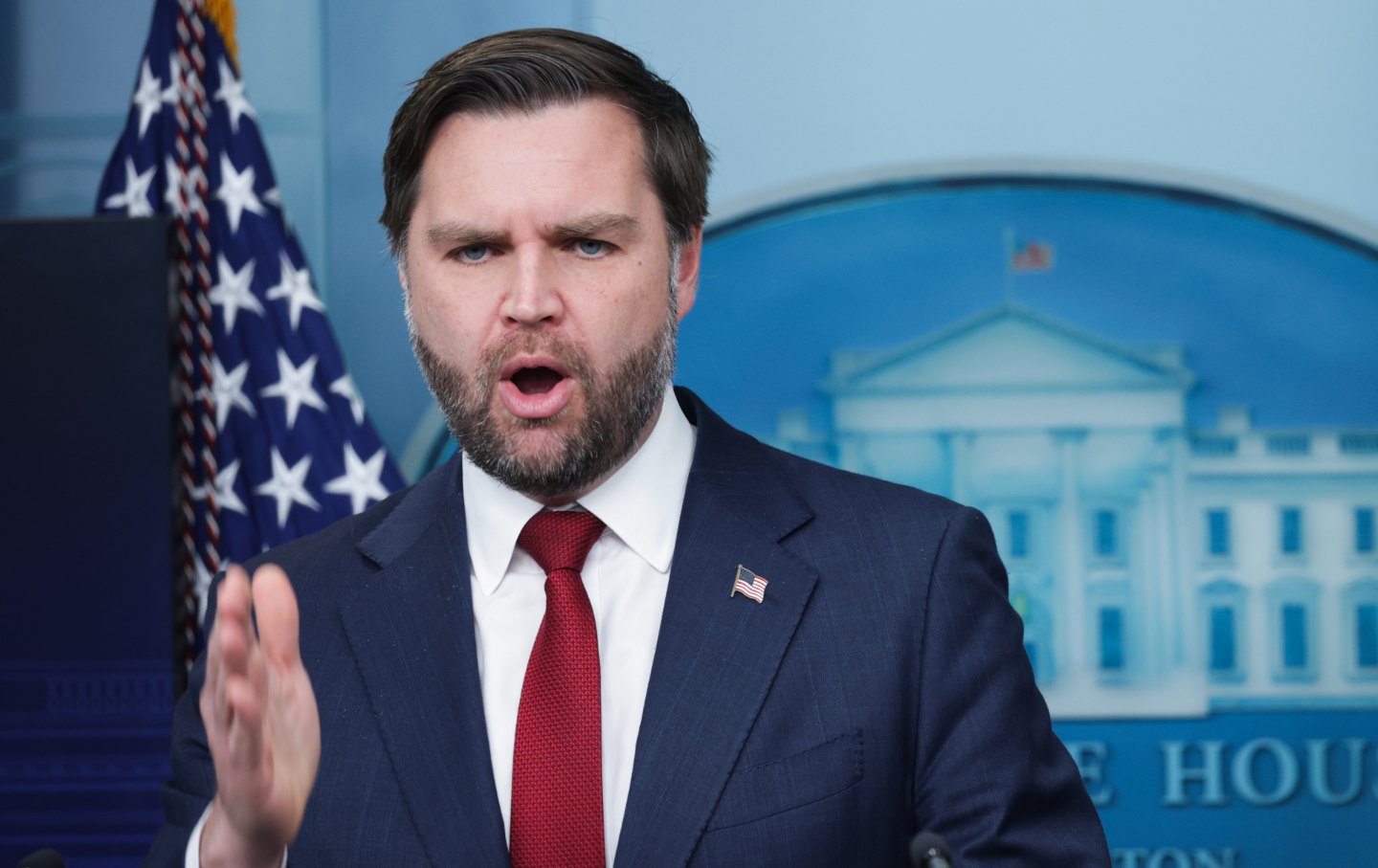
Renee Good’s Killing Has Unleashed MAGA’s Misogyny Renee Good’s Killing Has Unleashed MAGA’s Misogyny
To defend the indefensible, the right is going after white women as race traitors.
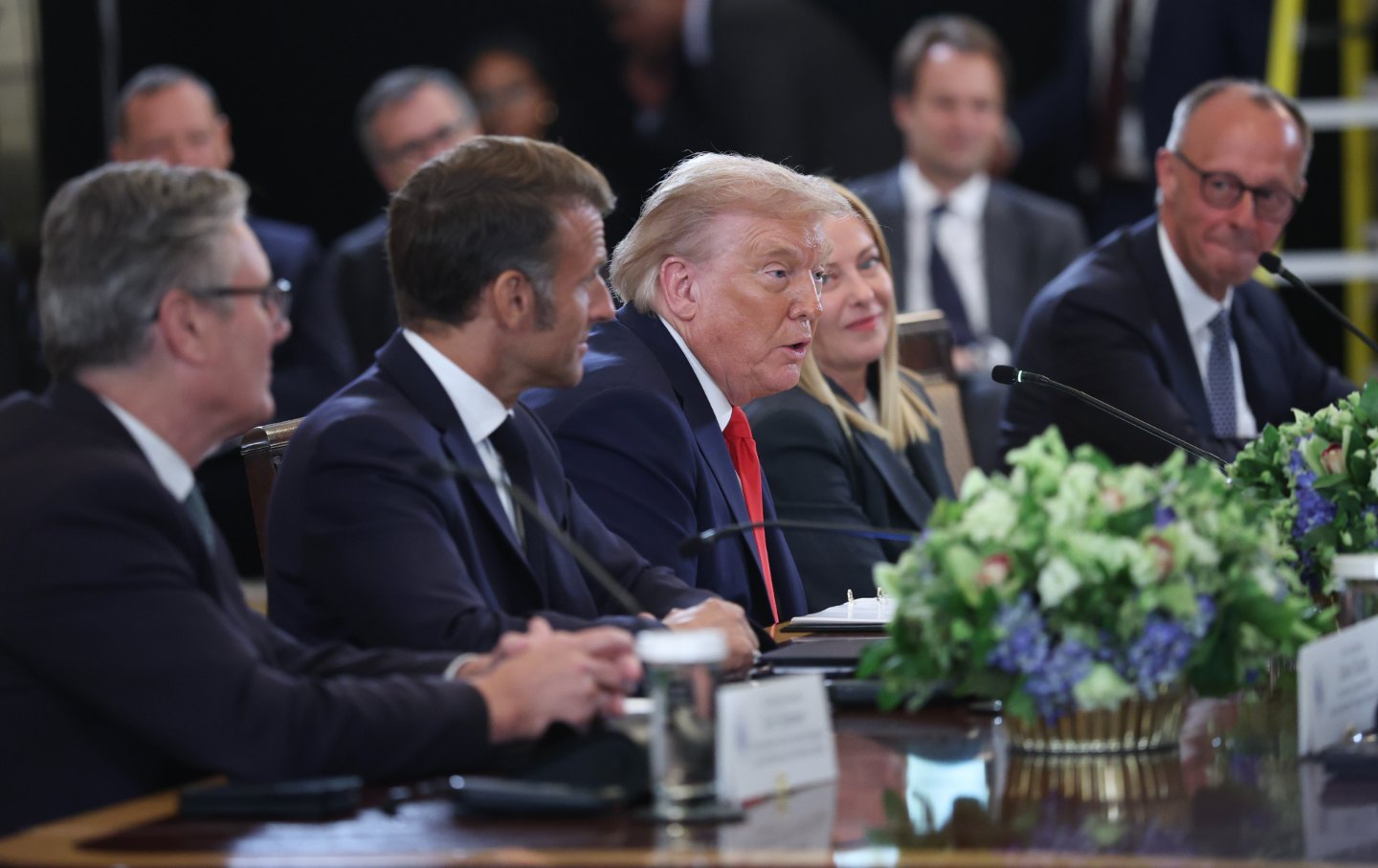
European Cowardice Is Empowering Trump’s New Imperialism European Cowardice Is Empowering Trump’s New Imperialism
NATO allies don’t want to confront Trump’s aggression. But they may ultimately not have a choice.
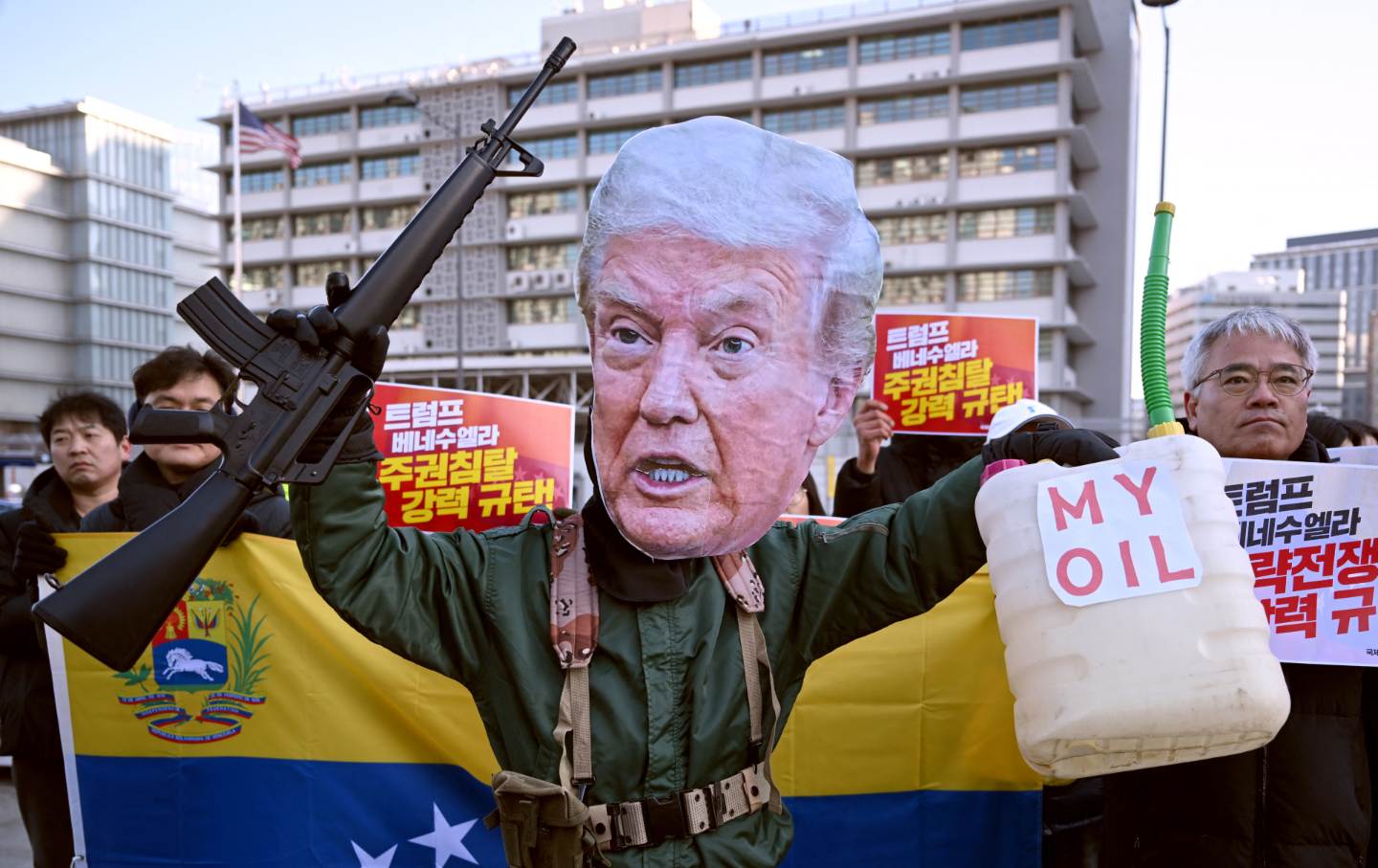
Donald Trump Is Drunk on War Donald Trump Is Drunk on War
The Venezuelan coup opens the gates to a new era of imperial plunder.
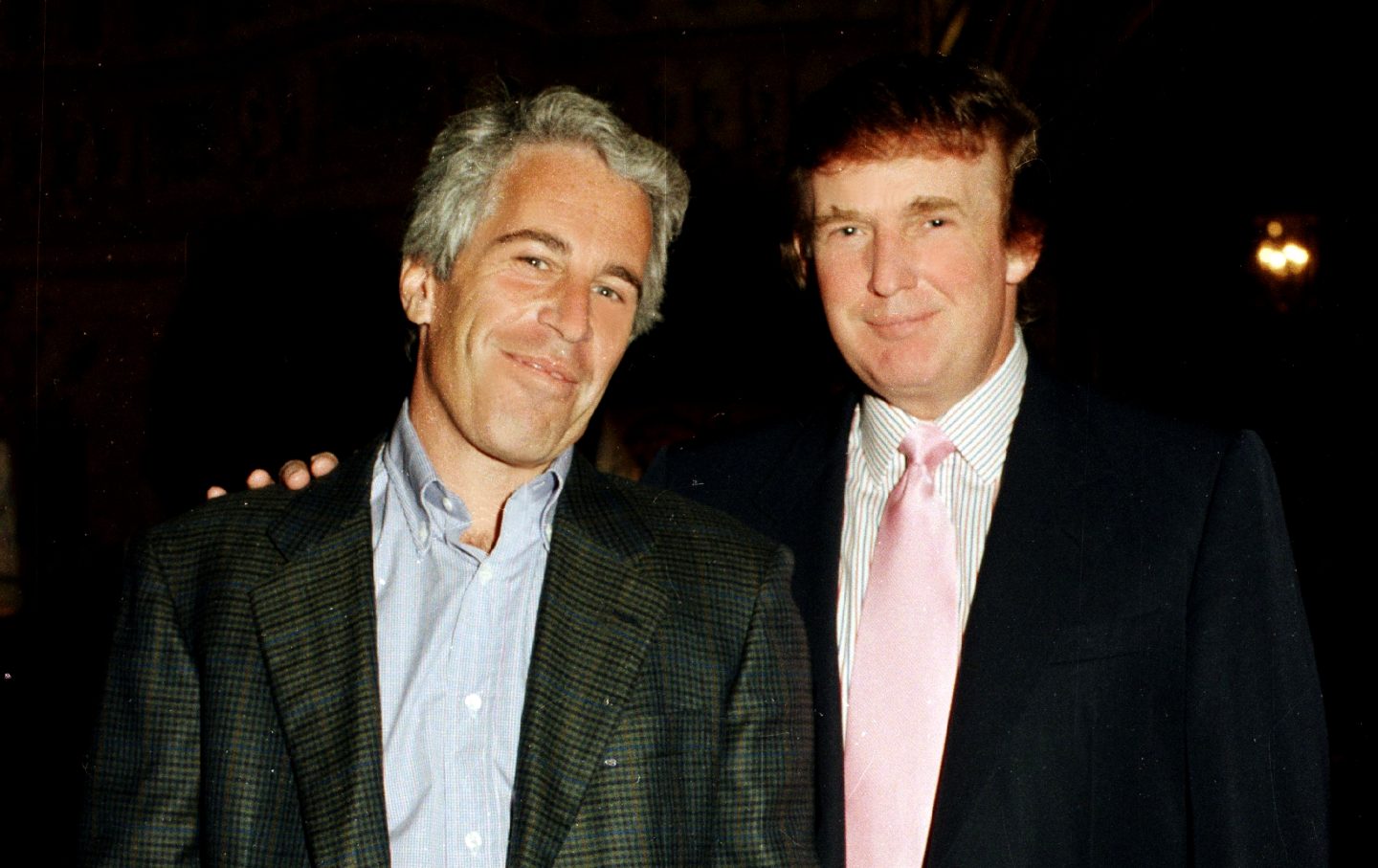
Mar-a-Lago Was Key to Jeffrey Epstein’s Criminal Enterprise Mar-a-Lago Was Key to Jeffrey Epstein’s Criminal Enterprise
New reporting shows that Trump’s split with his pedophile friend was opportunistic.
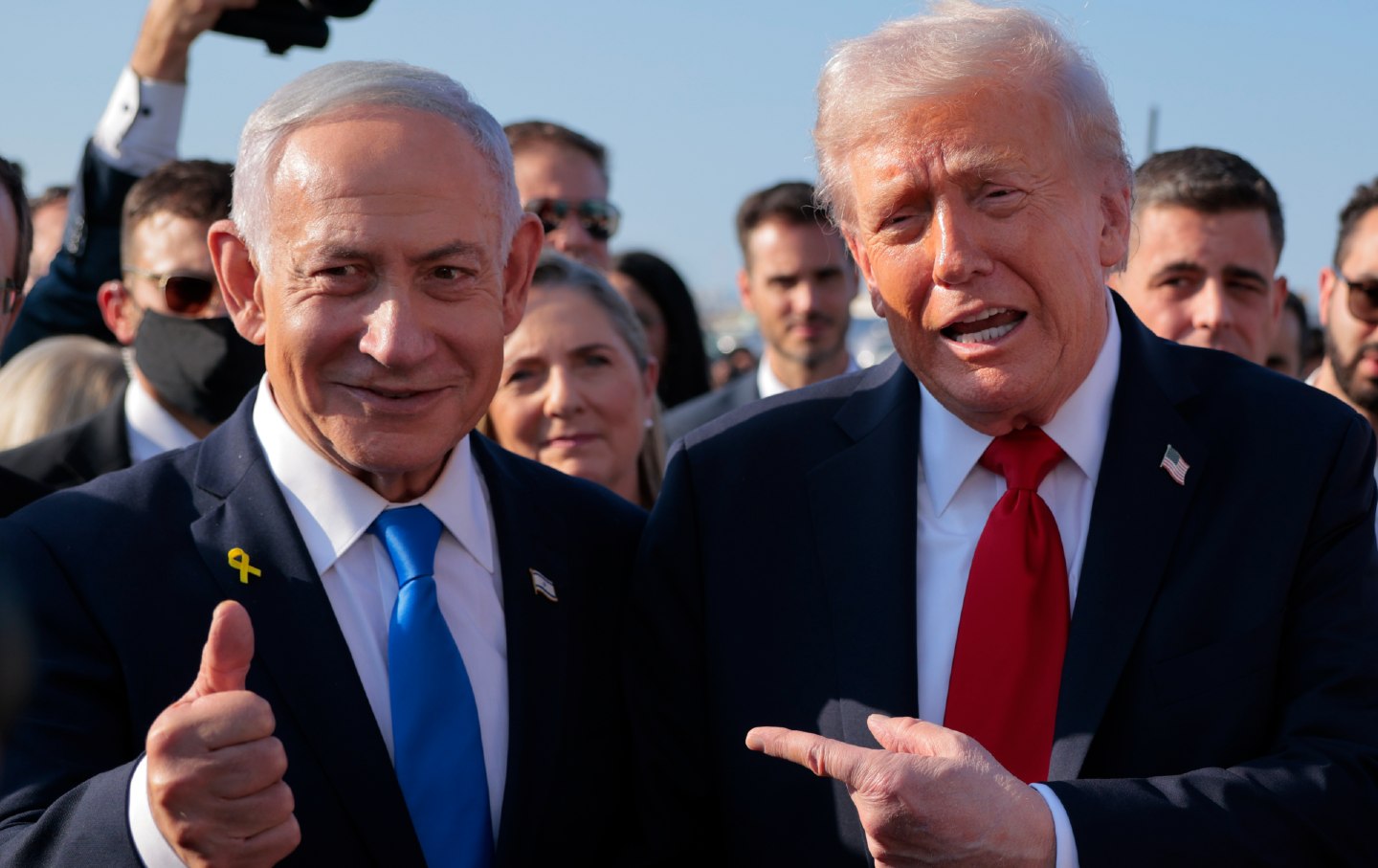
Netanyahu Is Destroying Trump’s Flimsy Peace Plans Netanyahu Is Destroying Trump’s Flimsy Peace Plans
The talk of a new Middle East is belied by Israel’s attacks on Gaza, Lebanon, Syria, and Iran.
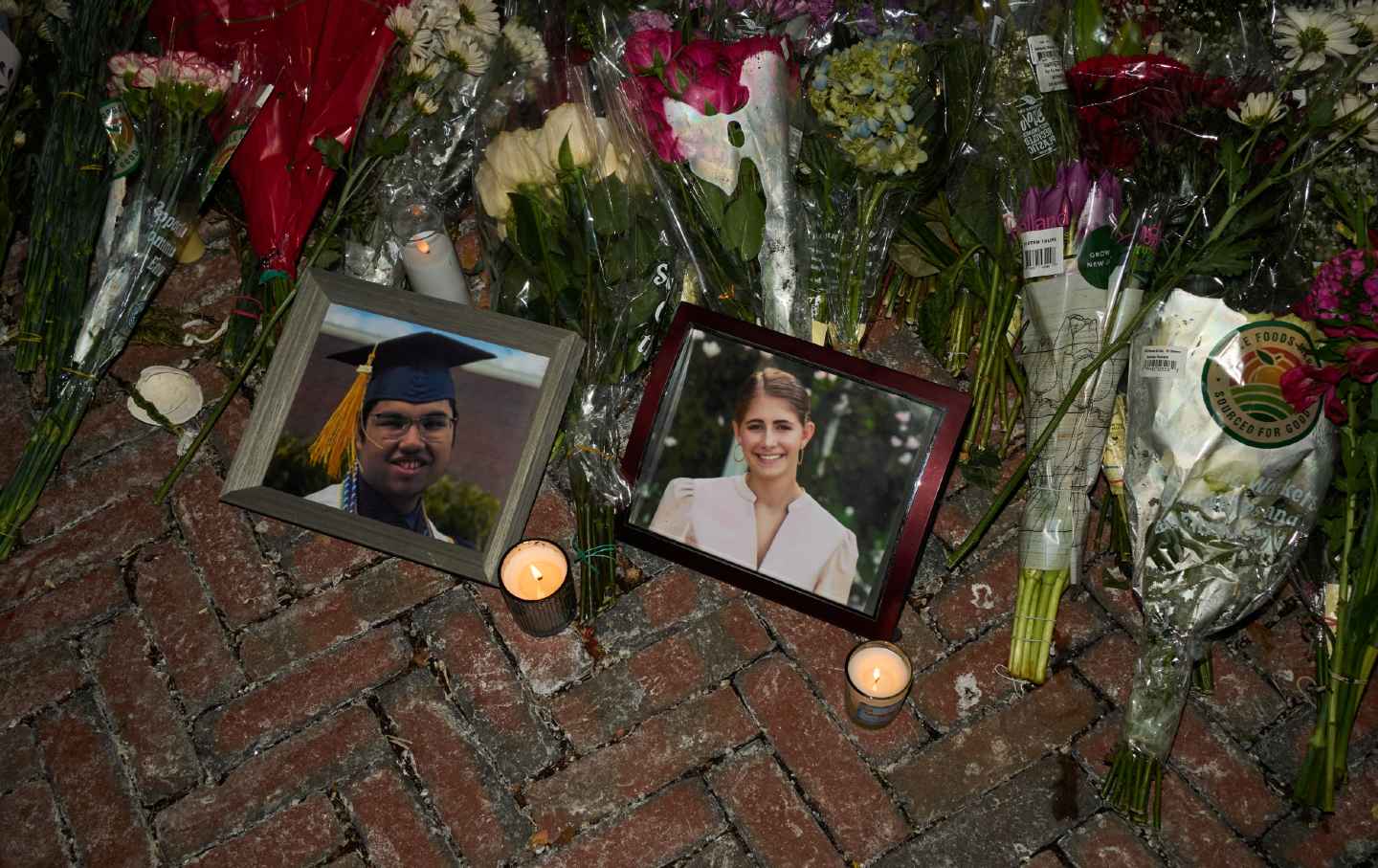
Islamophobic Elites Lied to Destroy the Life of a Palestinian Brown Student Islamophobic Elites Lied to Destroy the Life of a Palestinian Brown Student
Plutocrats, pundits, and government officials joined together in a racist smear campaign against a queer Palestinian student at Brown University.


